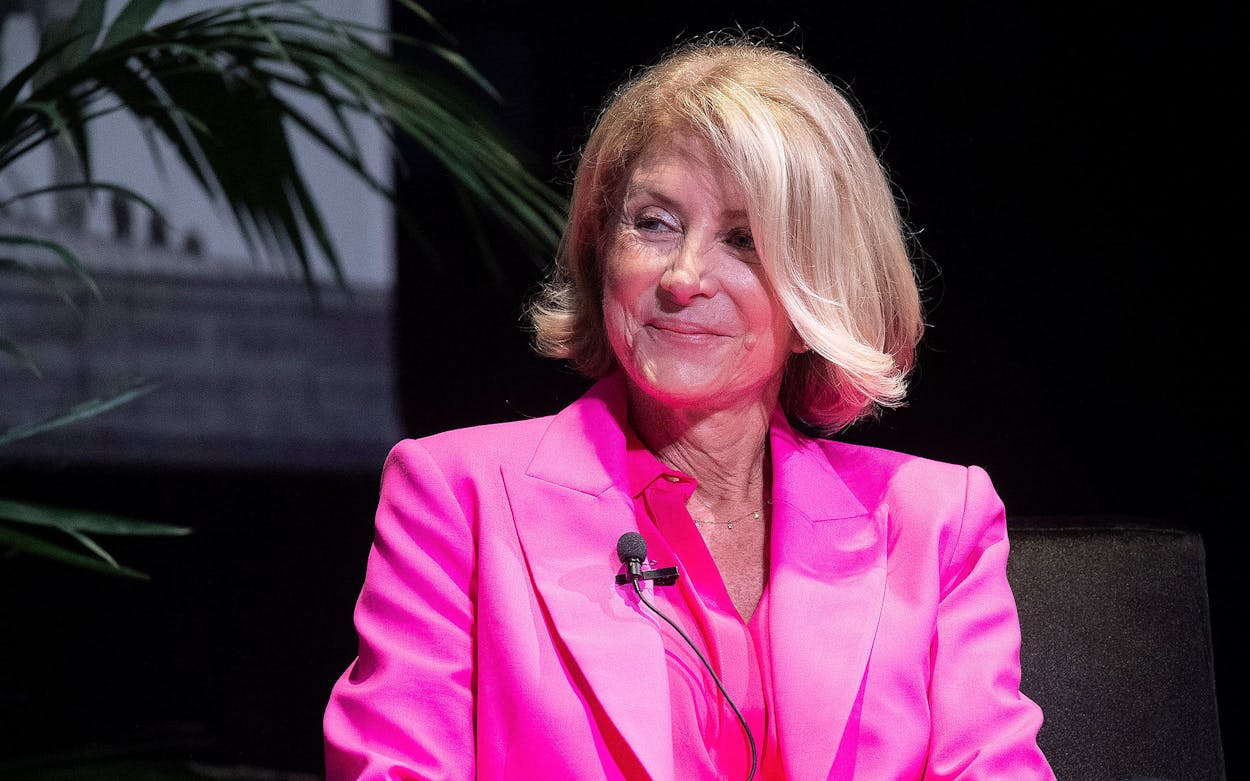Ten years after her historic filibuster, former state Sen. Wendy Davis will be returning to the Texas Capitol in a new role: senior adviser to Planned Parenthood Texas Votes.
She joins the group’s political fundraising and advocacy arm at a low point for reproductive rights in Texas. Abortion access has been obliterated in Texas and many of the surrounding states. Abortion funds have stopped financially supporting people who travel out of state to have the procedure, fearing prosecution. After moving Planned Parenthood out of the Medicaid program, Texas is now trying to sue the clinics out of existence.
And while other states saw electoral backlash to aggressive abortion bans, Republicans in Texas swept to easy victories across the board.
After two high-profile defeats at the ballot box herself, Davis is returning to a changed Capitol to pick up the same fight.
“I’ve dedicated much of my life to pushing back against extremist attacks on our most fundamental rights,” Davis said in a statement. “I couldn’t sit on the sidelines while those same actors attempt to eradicate the crucial health care Planned Parenthood provides to patients across this state and this country each and every day.”
Alongside Davis, Planned Parenthood Texas Votes has elevated Shellie Hayes-McMahon and Drucilla Tigner to co-executive directors. Hayes-McMahon, the first Black woman to lead the organization, joined Planned Parenthood Texas Votes in 2021 from Annie’s List, which recruits and trains women to run for office in Texas. Tigner also joined in 2021, after working as chief lobbyist for gender equity for the American Civil Liberties Union of Texas.
The new leadership team is hoping to capitalize on the increased interest in reproductive rights after the overturn of Roe v. Wade and build the political infrastructure to block, and eventually reverse, many of the policies Republicans have enacted in Texas, Tigner said in an interview with the Texas Tribune.
“Our organization is building the next generation of movement-leaders by investing in programs for young people across the state,” she said. “We are also investing in programs for supporters and volunteers who want to dedicate more of their time and effort into this work, and we are building the pipeline for future success in Texas.”
This legislative session, Tigner said, the organization is focusing on raising awareness around bills that are targeting access to contraception and filing proactive legislation that would restore Planned Parenthood’s access to state funding and repeal the abortion bans that went into effect last summer.
“While we know that this legislative session is not likely to be the session that those things pass, we have to start fighting for the world that we want right now,” Tigner said.
Davis’s history of challenging abortion restrictions
Davis is perhaps best known for her thirteen-hour filibuster to block a 2013 abortion bill that required abortion providers to adopt requirements so stringent, they would have shuttered most of the clinics in the state.
The bill eventually passed; it was later struck down by the U.S. Supreme Court. But that filibuster elevated Davis, and the fight over Texas’s abortion laws, into the national spotlight.
“I remember it so vividly, that day; the Capitol was swarmed with hundreds, thousands of people to support her and the importance of abortion access here in Texas,” Tigner said. “Her historic filibuster spurred a generation of activists in Texas to join the movement.”
Raised by a single mother, Davis grew up poor and, by nineteen, was a single mother, divorced, and living in a trailer. She went back to school, studying to be a paralegal, and eventually graduated from Harvard Law School.
In 2008, she won her race for state Senate, unseating a Republican incumbent, and launched a successful filibuster against a school funding bill two years before her historic abortion filibuster.
She ran for governor in 2014, losing to Greg Abbott by 20 points. She next founded Deeds, Not Words, a nonprofit that aimed to mobilize young women. And in 2019, she ran against U.S. Rep. Chip Roy, losing by a narrower seven-point margin.
Most recently, Davis filed a lawsuit to challenge Texas’s ban on abortion after about six weeks of pregnancy. The lawsuit was dismissed earlier this month.
“Wendy is an icon of the reproductive rights movement. She’s an icon of the progressive movement in Texas,” Tigner said. “With her, together with Shelly and I, we have the opportunity to really build the movement that we want to see.”
This article originally appeared in the Texas Tribune.
- More About:
- Planned Parenthood
- Abortion
- Wendy Davis






